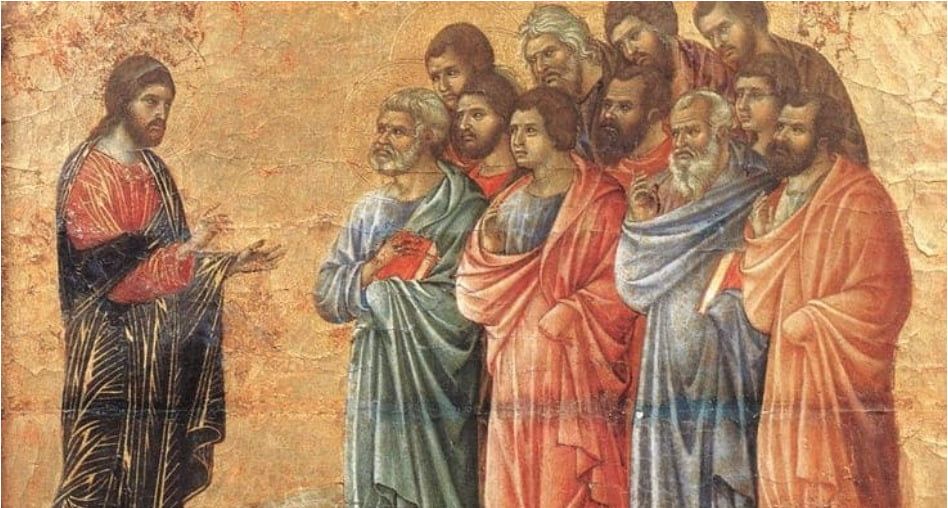Message of Abbot Paul - Wednesday - 20th March 2024
Abbot Paul • March 19, 2024
There are days when it’s easy to write this message, plain sailing in fact, and there are days when I have difficulty knowing just where to begin and what to say. Usually, the Gospel of the day inspires a response, but there are times when I wonder how on earth to explain in a few, simple words what Jesus is saying, something that might be helpful for us today, not that the word of God is ever irrelevant, how could it be? But Jesus spoke in one particular context and the Gospels were written in another particular context, and that is what makes it difficult at times, but not just difficult, above all fascinating and rewarding. Today’s Gospel passage from John, (Jn 8: 31-42) is no exception.
Jesus is speaking with Jewish religious leaders in Jerusalem. Some have come to believe in him, but then he says,
“If you make my word your home
you will indeed be my disciples,
you will learn the truth
and the truth will make you free.”
These are not easy words for them to accept. In what way are they not free, they wonder, since they are descended from Abraham. How can the truth make them free, if they are not slaves? In reply, Jesus says that, “everyone who commits sin is a slave.” He then adds, “If the Son makes you free, you will be free indeed.” He knows that by birth they are “sons of Abraham” and that Abraham is their father, but what are they in reality? Abraham was obedient to God and walked with God, but they do not, because they will not listen to Jesus. He says clearly,
“If you were Abraham’s children,
you would do as Abraham did.
As it is, you want to kill me
when I tell you the truth,
as I have learnt it from God;
that is not what Abraham did.
What you are doing is what your father does.”
Jesus keeps repeating the fact that they want to kill him. In John, the Passion narrative seems to begin from very early in the Gospel, and it’s only in John that we find these long discussions, really interrupted discourses on the part of Jesus. His hearers are outraged and react by saying, “’We were not born of prostitution,’ and ‘we have one father: God.’” To this Jesus retorts,
“If God were your father, you would love me,
since I have come here from God;
yes, I have come from him;
not that I came because I chose,
no, I was sent, and by him.”
Not to recognise and accept Jesus as Son of God and love him, means not knowing God and not loving and obeying him. To love Jesus is to love God, for Jesus is God. What we find in John’s Gospel is known as high Christology. An easy way of remembering this is to think of Jesus’ words to Philip, “Anyone who has seen Me has seen the Father." (Jn 14: 9)
So, the question for us today is yet again, how do we see Jesus, who is he for us? A theologian once described him as being “the human face of God.” Do you find that description or definition helpful? Do you see the Father in Jesus? Personally, I just take what Jesus says as truth. For me, he is the Way and the Truth and the Life. Not only that, when I read or hear the Gospel read, I know it is Jesus speaking to my heart and I thrill at the sound of his voice. Strange, in the realm of faith, I’m still that small boy who first heard Jesus speak to me when my own father read me bedtime stories from the Children’s Bible and that was a long time ago.













